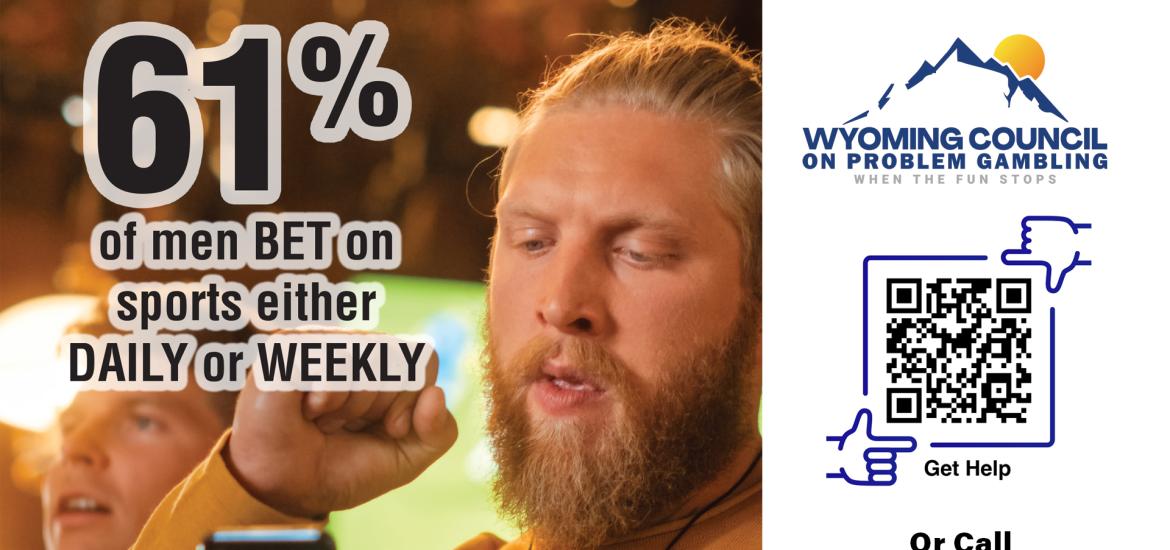Gambling
Gambling: The hidden addiction | News Letter Journal

Each time you place a bet, you’re risking something. But is it worth risking your life?
Gambling might very well be the hidden addiction of the century for people across all walks of life.
Adelaide Wilson, a mental health specialist and the executive director of the Wyoming Council on Problem Gambling, started her involvement with gambling issues in Minnesota in 2002. She said she has been helping Wyoming strive for healthier communities since 2012.
“One thing I do want to share as the executive director of Wyoming Problem Gambling, we, as a council, are neutral on the issues of legal gambling,” Wilson said. “We are not pro or against, but the goal is to provide resources, and information to those who have questions about it. Also, those who are struggling with it.”
Increasing awareness and supporting prevention help destigmatize gambling issues, according to Wilson.
Understanding why problem gambling is an issue is not simple, Wilson said.
“There are many different reasons why gambling is such a large issue, as any number of factors can impact that situation. Environment, genetic history, existing medical or mental health issues such as anxiety and depression, age, or more simply when the entertainment stops, everything changes and it becomes a problem,” she explained.
According to Wilson, any number of factors can increase the potential of a gambling disorder. However, more often than not, those factors align with substance abuse disorders.
“A study done back in 2008 showed that people with mental health issues and substance abuse disorders were 17 times more likely to develop a gambling problem,” Wilson said.
Gambling has four phases, Wilson noted.
“The thing about gambling and issues related to it, is that there are four phases of gambling. And they all impact addiction in general. There’s what’s called the winning phase. You get that first win, you get that first high and it’s exciting. Dopamine is released in the brain and it feels good and you keep playing,” she said. “That can also be what’s called chasing your losses, which then leads you into what’s called the losing phase, that sort of moves into what is called the desperation phase and then the hopeless phase.”
Financial chaos often nurses the foundation for problem gambling and the ultimate mental health rabbit hole, Wilson said.
“Losses can be immediate and extreme, as you might imagine,” she said. “Those who meet the criteria for problem gambling are also 17 times more likely to consider suicide, especially as it relates to financial indebtedness.”
Three forms of gambling are legal in Wyoming, Wilson noted. In order to support prevention, she said, regulations have been set within each group.
“Wyoming as a state has three groups identified related to gaming. The first is skill-based amusement games, that even includes those crane games you see in stores or restaurants,” she explained. “But even the crane games are regulated. The second group is pari-mutuel, so horse racing, and the last group that really became legalized in Wyoming is online sports wagering. For Wyoming, this would include Fanduel or DraftKings.”
Online sports wagering groups have contributed to increased gambling, Wilson said.
“It’s legal, it’s available,” she said.
Wilson described the type of person most at risk for falling victim to a toxic relationship with gambling.
“One thing I think is kind of unique is, typically, people between the ages of 18 and 24 are at a higher risk. Part of this is because the brain continues to develop until around age 24. Brain development isn’t done, emotions and logic are not fully formed, and so young people, especially boys and men, tend to be more susceptible. Men typically outnumber women 2 to 1,” Wilson said.
But she cautioned that some data now indicates that this profile is changing.
“Over the last 20 years, everything has changed so significantly,” Wilson added.
Wilson emphasized that the best way to battle problem gambling is awareness.
“I’ve had the opportunity to meet with a few different prevention specialists in various counties in the state, who received funding to increase awareness around problem gambling. One in particular in Johnson county, it was decided to sort of take a two- to three-prong approach,” Wilson said. “The first being creating problem gambling prevention campaigns using multimedia, based on each county, using their social media platforms to continue to increase awareness about gambling.”
Wilson said the second part involves “providing general prevention information and training for those interested in wanting to know more.”
Another avenue to increasing awareness and providing help and resources, she said, “is offering training for the mind health from mental health professionals who are licensed in offering treatment. This is so that they are able to offer the best treatment available. We treat problem gambling differently than a substance use disorder, and I’m coming from that as a licensed mental health professional.”
However strenuous the struggle may be, she emphasized, help is always near.
“We have a resources page that people can visit. The Wyoming Department Of Health also has a resource page people can go to,” Wilson said.
People can find more information and help at WyomingCPG.org, and the National Council On Problem Gambling at NCPgambling.org also has information available to the public.
“The Wyoming Council is an affiliate member of this group as well,” Wilson said. “Also the Wyoming Gaming Commission. People can go to their website and find a lot of information and some additional resources that might prove helpful.”
If you or someone you love is struggling with a gambling addiction, it’s important to seek help now. The power lies within the individual to make that choice for themselves, Wilson said.
(Editor’s Note: The News Letter Journal attempted to reach out to local mental health professionals for insights on this issue, but sources with both the local and state office of Volunteers for America did not respond to multiple requests for interviews. A spokesperson for the Wyoming Department of Health said that agency did not possess the expertise to provide information for an interview, and media contacts at the University of Wyoming were unable to find any faculty members who felt comfortable being interviewed on the subject.
Kristi Lipp of 21 Wellness, a local prevention and awareness coalition for Weston County, also chose not to volunteer any information regarding problem gambling or its treatment locally, but she did refer the News Letter Journal to the Wyoming Council on Problem Gambling for expertise on this particular form of addiction and how individuals and families who suffer as a result of it can find support.
The lack of experts willing to contribute to this discussion on gambling addiction in itself shows how much the people of Wyoming are in desperate need of vigorous support and healthy guidance related to gambling addictions.)









